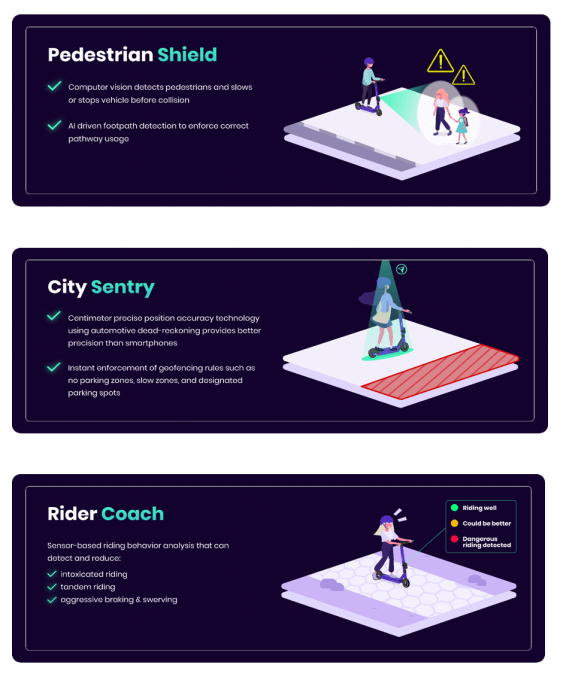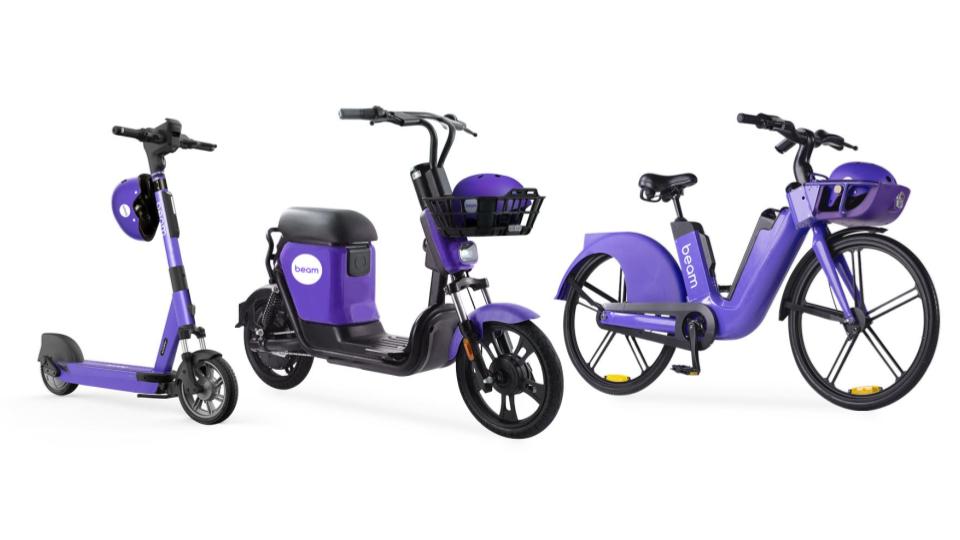Beam, a Singaporean shared micromobility operator, announced today that it has raised $93 million in a Series B round to accelerate growth into new countries in Asia.
The fresh capital, which brings its total funding raised to $135 million, was led by Affirma Capital with participation from Sequoia Capital India, Hana Ventures, ICT Capital, EDB Investment (EDBI), AC Ventures, RTP Global and Momentum Venture Capital. The Series B brings Beam’s valuation up into the triple digits, according to Beam CEO and co-founder Alan Jiang, who declined to provide exact numbers.
Beam, which currently operates e-scooters and e-bikes in 35 cities across Malaysia, Thailand, South Korea, Australia and New Zealand, aims to spread into markets like Japan, Indonesia, the Philippines, Vietnam and Turkey.
In addition, the new capital will enable Beam to spur its deployment of a new fifth-generation Beam Saturn e-scooter, which the company intends to start rolling out in the second half of this year. The next-gen scooter will come with an updated version of Beam’s safety platform, dubbed Micromobility Augmented Riding Safety (MARS), which helps protect pedestrians and enhance local governments’ control over where e-vehicles can park or ride, said Jiang.
Existing technologies within the platform include dead reckoning and on-edge geofencing, but the fifth-generation Saturns will have a feature called Beam Pedestrian Shield, “an onboard AI camera that can instantly and accurately detect pedestrians to prevent collisions and detect footpaths to automatically reduce vehicle speed or even prevent riding completely,” according to Deb Gangopadhyay, chief technology officer of Beam.
Beam says its onboard camera with computer vision will be rolling out at scale by Q3 this year. The company initially will be piloting the onboard camera technology, which is developed in collaboration with Drover AI, the computer vision startup working with Spin and Helbiz on similar tech. European operator Voi is doing the same with Luna in the U.K.
Advanced rider assistance systems: Tech spawned by the politics of micromobility
New tech aside, the Saturn will also feature 12-inch wheels that are 20% larger than the average e-scooter wheels combined with hydraulic suspension. The Saturn has fully swappable batteries with sufficient capacity for 110 km of riding range, double the average e-scooter battery capacity, to further improve sustainability, according to the company.
Beam also plans to add a new e-moped to its vehicle portfolio, the Beam Pluto, in the second half of this year, and expects e-mopeds to comprise up to one-third of its fleet over the next two years, Jiang said in an email interview.

Beam’s revenue has seen 15x growth since 2020, according to Jiang, despite experiencing mobility restrictions caused by the COVID-19 pandemic, though the CEO didn’t provide a baseline for that growth. When asked about tightening regulations on micromobility in some Asian countries, Jiang told TechCrunch that Beam works very closely with regulators in all geographies the company operates in to provide safe and sustainable shared micromobility, adding that Beam rebalances vehicle assets between geographies depending on deployment opportunities. Micromobility is broadly being recognized as an indispensable mode of transport almost all over Asia, with the corresponding regulatory frameworks getting more mature, he noted.
“Our goal is to shift ‘single-person journeys’ onto shared small electric vehicles, which are step function more environmentally friendly for cities and cost-efficient for consumers,” Jiang told TechCrunch.
This article has been updated to reflect new information from Beam, and to reflect Drover AI’s involvement in Beam’s new safety features.































Comment